Gleision deaths: Malcolm Fyfield 'inspected' pit before flooding
- Published
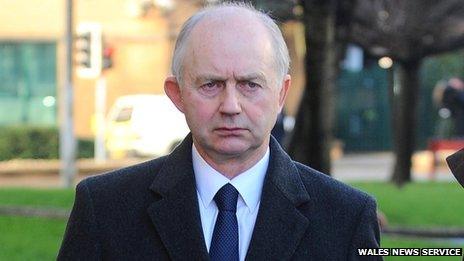
Malcolm Fyfield denies manslaughter charges
The manager of a mine where four workers drowned says he was in "no doubt" he inspected the right area of the pit the day before it flooded.
Malcolm Fyfield, 58, said he knew the Old Top Road area of the colliery and recognised it by its direction, undulations and its height and width.
He told Swansea Crown Court he inspected the entire area until "there was no where else to go".
Mr Fyfield and owners MNS Mining Ltd deny manslaughter charges.
Mr Fyfield said he was satisfied there was no water in the area and the miners continued to use explosives to break into old mine workings in order to create a better air circulation system.
Foul air
But they were suddenly swamped by thick black water and four miners were killed almost instantly.
The prosecution claims Mr Fyfield did not take adequate steps to check for water before he and his men broke into the mine's old workings.
David Powell, 50, Charles Breslin, 62, Philip Hill, 44, and Garry Jenkins, 39, died when 650,000 gallons of water rushed into the area they were working in after they blasted into a flooded old section of the pit in September 2011.
Mr Fyfield managed to survive after crawling out through mud and sludge, the court has heard.
He was asked by his barrister, Elwen Evans QC, about an interview he had given to police after his arrests in October 2011.
He had already told the jury how he had inspected the pit three times where the miners would work to ensure there were no dangers such as water, foul air or roof falls.
Miss Evans said police had put it to him that it would have been impossible for him to inspect the area because it had been underwater.
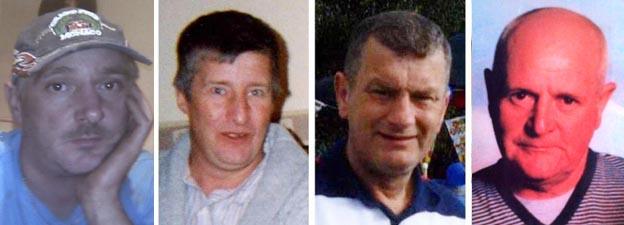
Garry Jenkins, 39, Philip Hill, 44, David Powell, 50, and Charles Breslin, 62, were killed in the mine
Mr Fyfield said he was in no doubt about the location.
"I am very experienced in identifying a roadway. That is definitely the route I took," he said. "I went to the bottom of the workings. There was nowhere else to go."
He said he found only "ponding," where small amounts of water had gathered.
Miss Evans said the prosecution relied on a plan which indicated the area would have been underwater.
But Mr Fyfield said the plan was wrong and added it was also possible that there had once been water there but it had drained away due to earlier mining activities.
Miss Evans said hours after the incident a rescue team had tried to reach the miners but could not progress beyond a certain spot because it was blocked by water. But Mr Fyfield had told police he had passed the location going in the other direction without too much difficulty.
"I am 100% sure I came out along that route. There is no mistaking it. It was clearly visible to me," he said.
'I do not take short cuts'
Mr Fyfield also told the jury that he entered the industry at the age of 23, following in the footsteps of his father and grandfather before later buying and running mines - most notably the Nant Hir and Darrell drift mines.
His expertise, he said, had seen him head-hunted for other projects as well.
"I have always been extremely careful," he said. "I take my responsibilities as a mine manager, I would like to think, to a very high standard because of the serious nature of the industry.
"I do not take short cuts. There was no need for me to take short cuts."
The jury also heard that Mr Fyfield came out of retirement just months before the disaster because he was "bored" of non-working life.
He said he stepped away from the industry in 2008 because of a lung condition and ongoing back problems.
The man dubbed "the Alex Ferguson" of the small mining world made a comeback when the owners of Gleision drift mine convinced him to take on the top job.
But Mr Fyfield denied former Gleision manager Ray Thomas had warned him there was water in the central workings at the pit.
The jury also heard more about how Mr Fyfield suffers from severe post traumatic stress disorder as a result of the disaster and certain "trigger words" can bring on panic attacks.
He still sees a psychologist on a weekly basis and a psychiatrist "as and when required" and was on "high doses" of anti-depressant and anti-anxiety drugs as well as a sedative.
Mr Fyfield denies four counts of gross-negligence manslaughter and MNS Mining Ltd denies four counts of corporate manslaughter.
The trial continues.
- Published2 June 2014
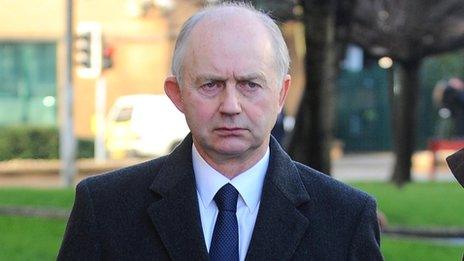
- Published21 May 2014
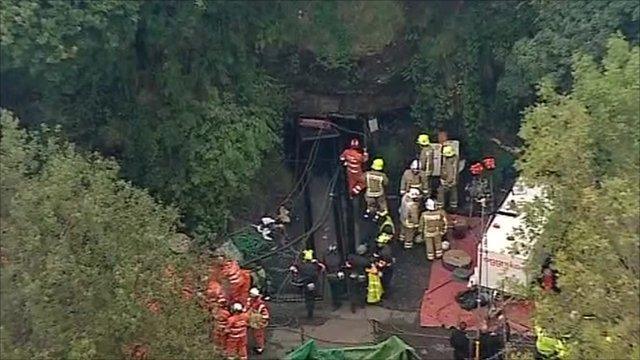
- Published20 May 2014
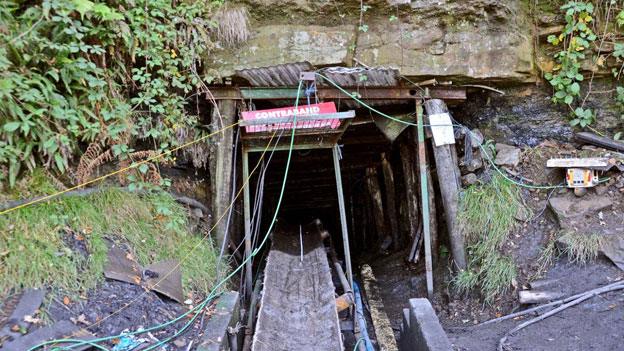
- Published20 May 2014
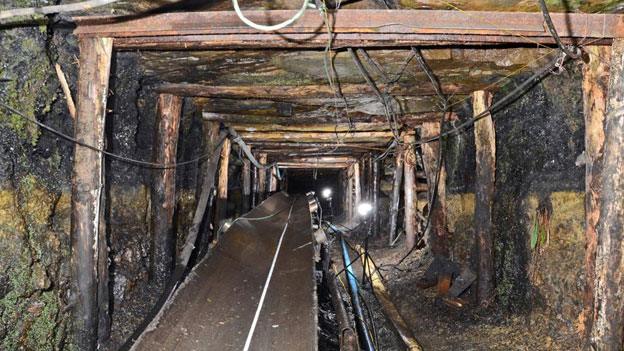
- Published14 May 2014

- Published6 May 2014
